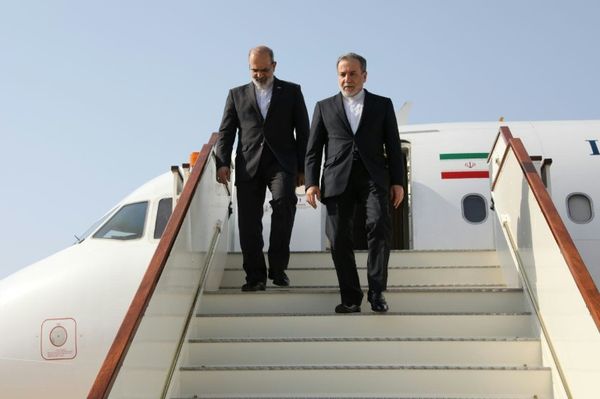
North Korean soldiers are likely fighting in Ukraine alongside Russian troops, with some believed already killed and more expected to be deployed, Seoul's defence minister said Tuesday.
Ukrainian media have reported that six North Korean military officers were killed in a Ukrainian missile attack on Russian-occupied territory near Donetsk on October 3.
Seoul's defence minister, Kim Yong-hyun, told lawmakers Tuesday that it was "highly likely" that the report was true.
"We assess that the occurrence of casualties among North Korean officers and soldiers in Ukraine is highly likely, considering various circumstances," he said.
North Korea is expected to send more foot soldiers to support Russia's war effort, he added.
"The issue of deploying regular troops is highly likely due to the mutual agreements that resemble a military alliance between Russia and North Korea," Kim said.
Both Ukraine and Russia have foreign fighters in their ranks, with AFP journalists in India and Nepal having investigated recruitment drives for the Russian military.
Experts have long said North Korean missiles are being deployed in Ukraine by Russian forces -- something both Moscow and Pyongyang have denied.
South Korea also claims Pyongyang has sent thousands of containers of weapons to Russia for use in Ukraine.
The nuclear-armed North has publicly bolstered military ties with Moscow in recent years.
President Vladimir Putin made a rare visit to Pyongyang in June, where he signed a mutual defence agreement with leader Kim Jong Un.
Analysts have warned that the recent ramped-up testing and production of artillery and cruise missiles by the North could be in preparation for shipments to Russia.
Experts said that moving from supplying shells to soldiers to Russia was the logical next step.
"For North Korea, which has supplied Russia with many shells and missiles, it's crucial to learn how to handle different weapons and gain real-world combat experience," said Lim Eul-chul, a professor at Seoul's Institute for Far Eastern Studies.
"This might even be a driving factor behind sending North Korean soldiers --- to provide them with diverse experiences and war-time training," he told AFP.
It is likely that higher-ranking North Korean officials would have been dispatched to Russia earlier on, to help manage the North Korean weaponry or facilitate trainings on their use, Lim said.
"What's new here is not only the potential for continued artillery and weapons support from North Korea but also their growing involvement, such as using North Koreans as additional labour as the war drags on."
The key question, he added, is what North Korea will get in return from Russia.
North Korea is barred by United Nations sanctions from any tests using ballistic technology.
But Moscow used its UN Security Council veto in March to effectively end UN monitoring of violations, for which Pyongyang has specifically thanked Russia.
North Korea is expected to scrap a landmark inter-Korean agreement signed in 1991 at a parliamentary meeting this week, as part of Kim's drive to officially define the South, Washington's security ally, as an enemy state.
Moscow and Pyongyang have been allies since North Korea's founding after World War II and have drawn even closer since Russia's 2022 invasion of Ukraine.







